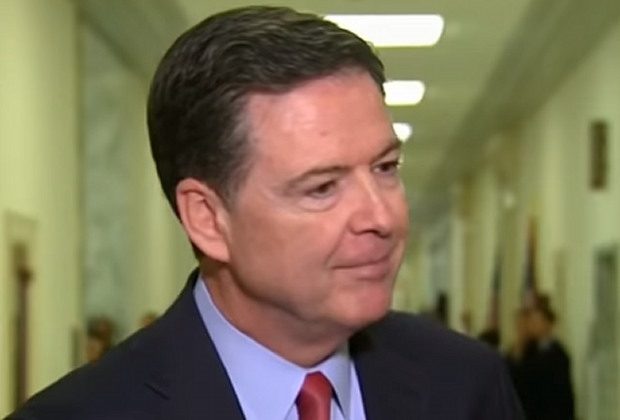 James Comey
James Comey
In January 2017, James Comey sent then-DNI James Clapper an email informing him that the bureau had not verified the contents of the Steele dossier but Comey went on to sign the second FISA warrant on Carter Page anyway.
“We are not able to sufficiently corroborate the reporting,” Comey wrote in a Jan. 12, 2017 email to James Clapper in a newly declassified memo.
The memo shows a back-and-forth between the US intel community and the FBI discussing Christopher Steele and Carter Page six months into the bureau’s “Crossfire Hurricane” investigation that kicked off in July of 2016.
The CIA had already told James Comey’s FBI that Carter Page, a Trump campaign advisor who was a target of spy warrants, was NOT a Russian spy, but rather a CIA asset who had previously helped US intelligence for many years.
The FBI had also received warnings about former British spy Christopher Steele that he hated Trump and that Hillary Clinton’s campaign had planted the Russian collusion story in an effort to distract from her email scandal.
The FBI terminated Christopher Steele in November of 2016 but Comey used his fake dossier and signed the January 2017 FISA renewal on Carter Page anyway.
John Solomon via Just The News reported:
It was in that environment in the final days of the Obama administration that Clapper had written Comey earlier on Jan. 12, 2017 to inform the FBI that Clapper had decided to release a public statement declaring that the Steele dossier was only mentioned in an appendix to the intel community’s report because the “IC has not made any judgment that the information in the document is reliable.”
Comey tried to push back, suggesting Steele was deemed reliable (he actually had been terminated by the FBI for leaking by that time) and that his network included sources that might be in a position to know things (although the key source had already disavowed the information attributed to him in the dossier).
“I just had a chance to review the proposed talking points on this for today,” Comey wrote Clapper. “Perhaps it is a nit, but I worry that it may not be best to say ‘the IC has not made any judgment that the information in the document is reliable.’ I say that because we HAVE concluded that the source is reliable and has a track record with us of reporting reliable information; we have some visibility into his source network, some of which we have determined to be sub-sources in a position to report on such things; and much of what he reports in the current document is consistent with and corroborative of other reporting included in the body of the main IC report.
Then Comey added the line that undercut his argument: “That said, we are not able to sufficiently corroborate the reporting to include it in the body of the report.”
Inspector General Michael Horowitz concluded in a report that Comey’s January 12, 2017 FISA renewal contained several significant errors.
Last January, James Boasberg, the presiding FISA judge, admitted in a secret order that at least two of the spy warrants against Carter Page were not lawfully authorized.
Boasberg wrote in a January 7, 2020 order that the last two FISA warrants on Carter Page dated April 7, 2017 and June 29, 2017 were not valid.
James Comey still has not been indicted for his crimes related to Spygate.
So far only one FBI lawyer (Kevin Clinesmith) was charged in the Spygate scandal with one count of making false statements and ultimately sentenced to probation.
No comments:
Post a Comment